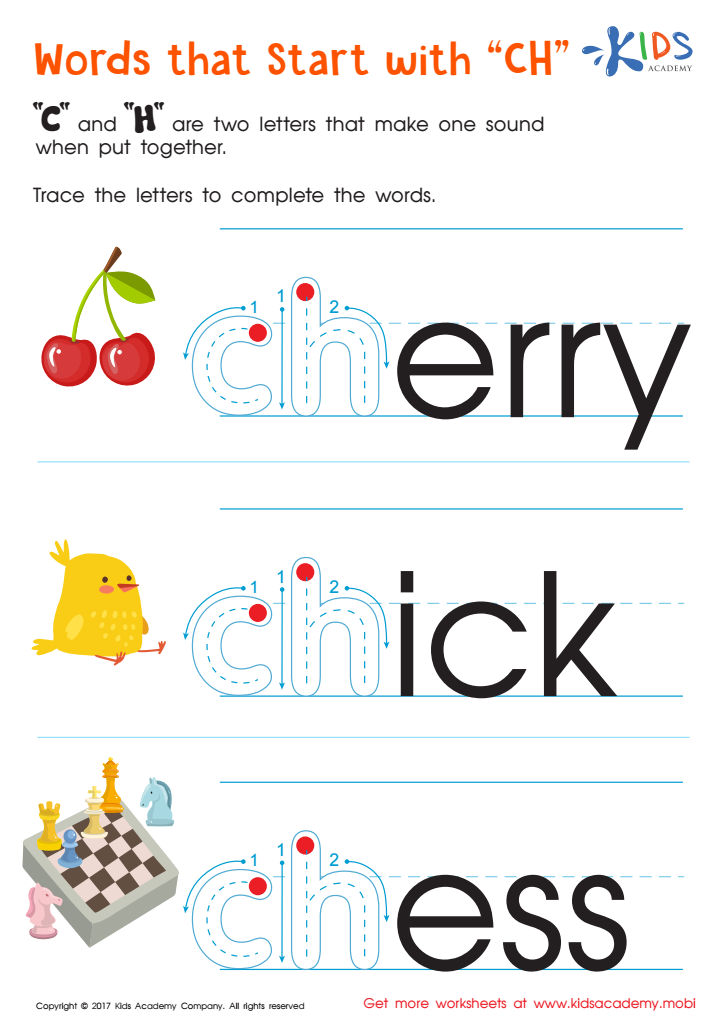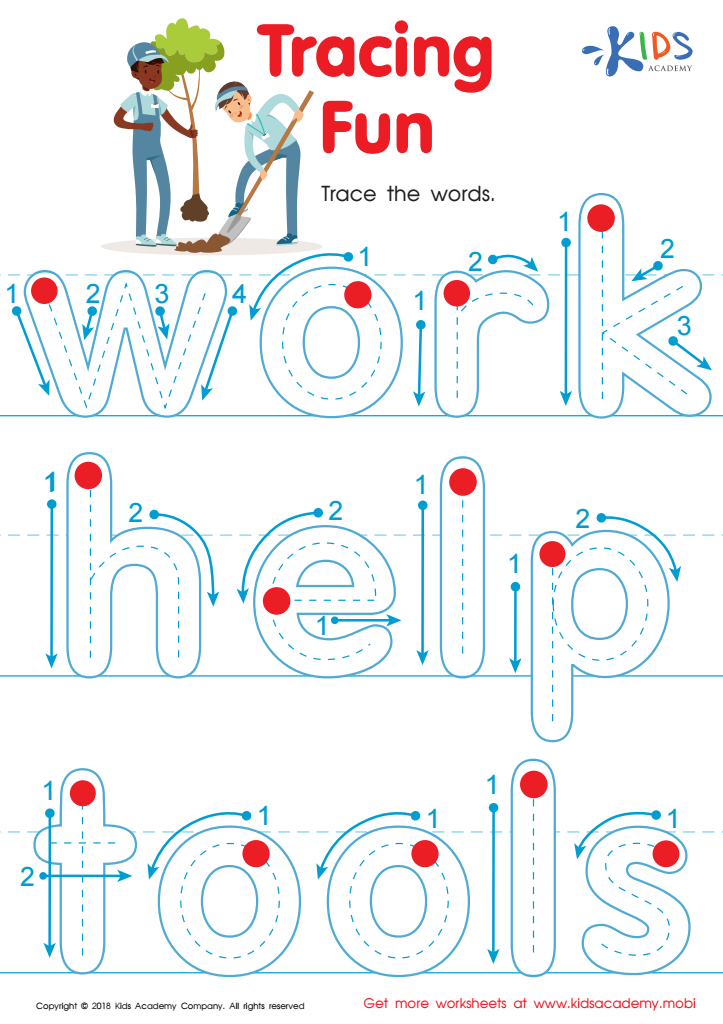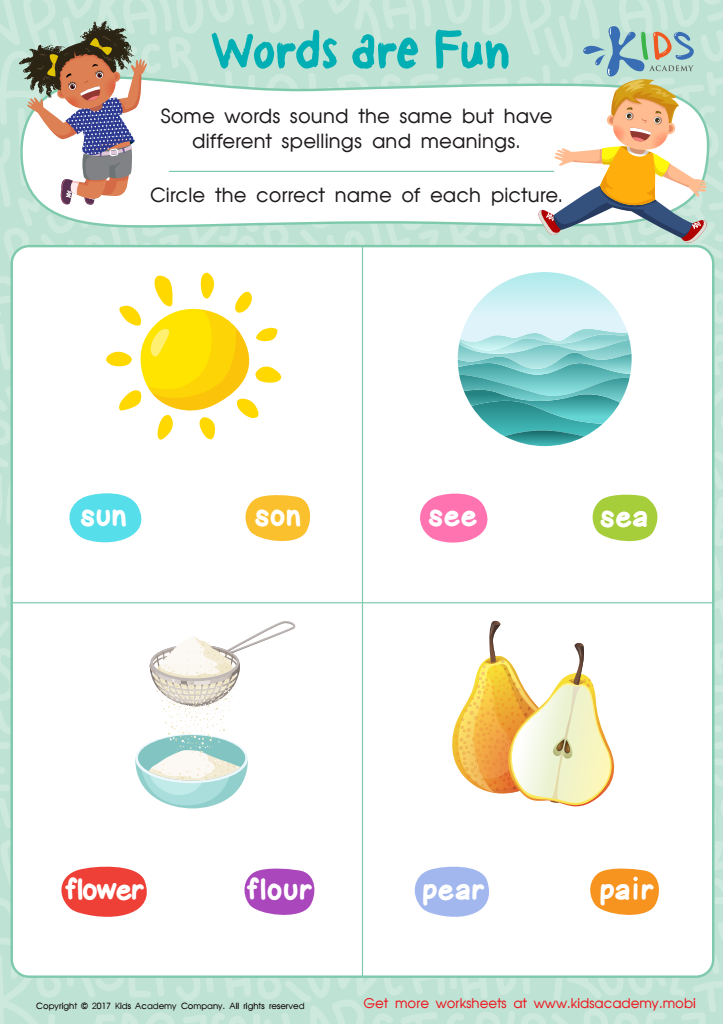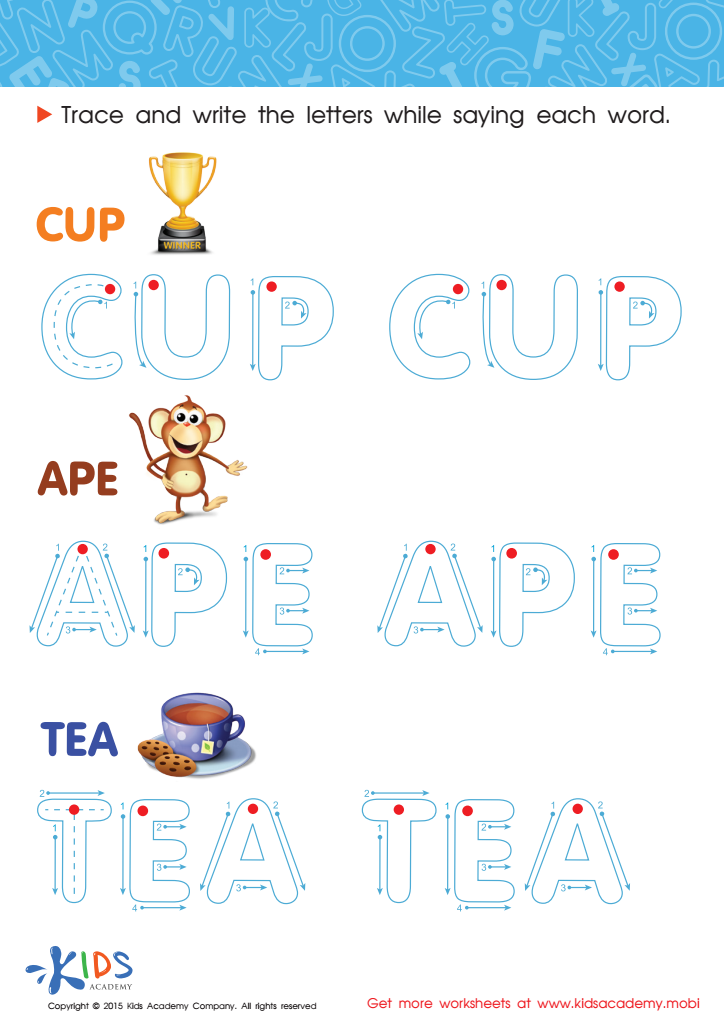Letter recognition Normal Writing Worksheets for Ages 6-8
4 filtered results
-
From - To
Introducing our "Letter Recognition Normal Writing Worksheets" tailored specifically for ages 6-8! These engaging and educational worksheets are designed to enhance your child's letter recognition skills, foundational for reading and writing success. Each worksheet is crafted to provide fun and interactive exercises, ensuring young learners can confidently identify and write both uppercase and lowercase letters. Perfect for at-home practice or classroom use, these printable activities nurture learning at a comfortable pace. Boost your child’s literacy skills with our expertly created tools today. Explore more and start your literary journey with us here at Kids Academy!


Words That Start with "ch" Spelling Worksheet


Tracing Fun Worksheet


Words Are Fun Worksheet


A Cup, an Ape and Tea Spelling Worksheet
Letter recognition and normal writing skills in children ages 6-8 are fundamental building blocks for their overall literacy development. At this age, children transition from recognizing letters individually to forming words and sentences, a crucial process for effective reading and comprehension. When parents and teachers prioritize letter recognition and penmanship, they lay the groundwork for fluent reading skills, which are essential for academic success.
Strong letter recognition aids in phonemic awareness, where children learn the sounds associated with each letter—a critical step towards decoding words. Early writing skills also reinforce letter recognition, as the tactile process of writing helps solidify the connection between letter shapes and their corresponding sounds.
Moreover, proficient writing abilities allow children to express their thoughts and ideas clearly, fostering creativity and boosting self-esteem. Poor early literacy skills can lead to reading difficulties, which may affect a child's confidence and academic performance in the long run.
Therefore, encouraging and supporting children in mastering letter recognition and normal writing not only enhances their reading and writing capabilities but also builds a strong foundation for lifelong learning. Through interactive activities, games, and practice, parents and teachers can ensure children develop these crucial literacy skills, setting them up for future success both in school and beyond.
 Assign to My Students
Assign to My Students





















